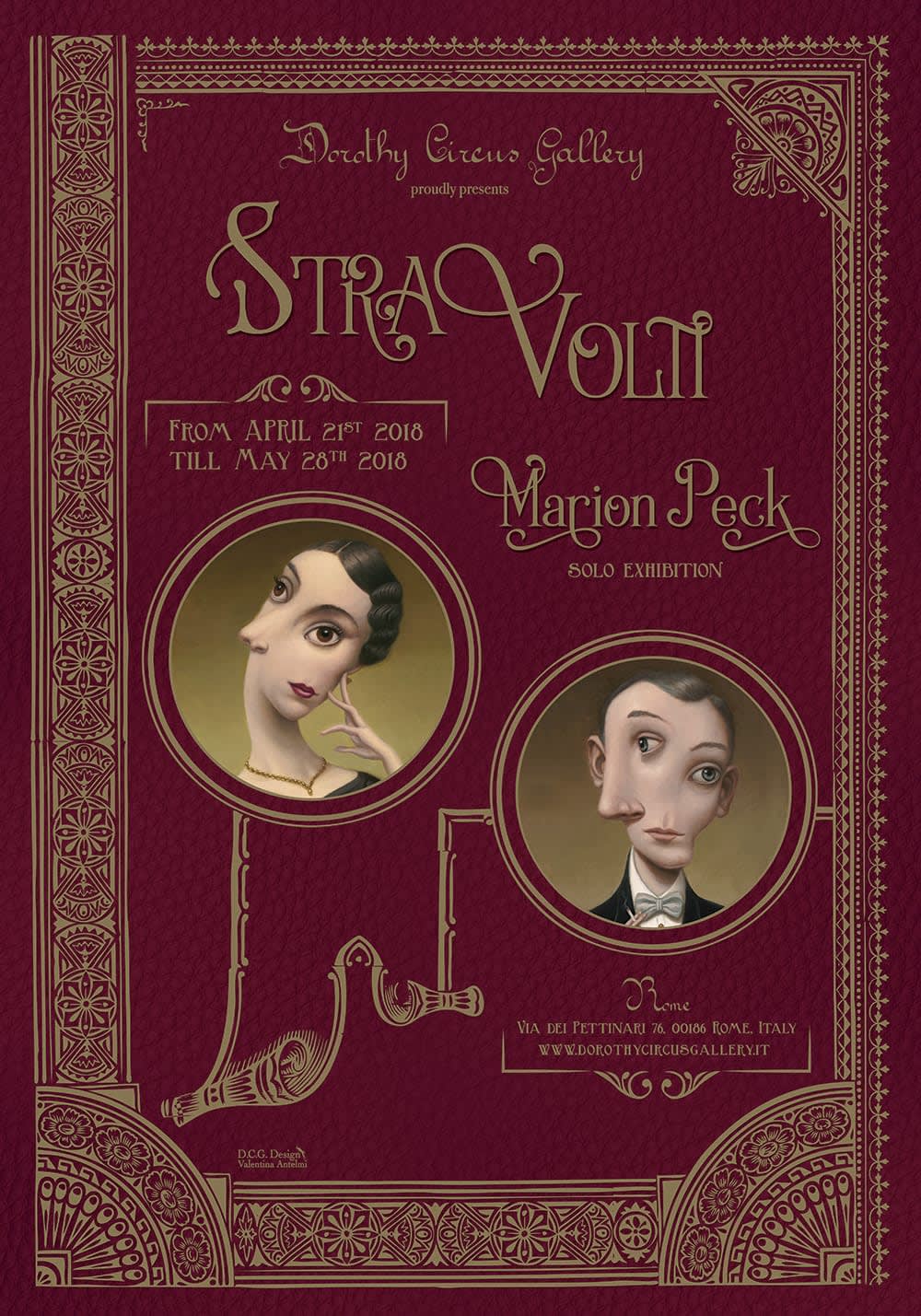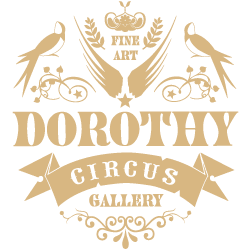"You can really understand the creative process only through the whole series of its variations."
(Pablo Picasso)
Dorothy Circus Gallery is proud to present "StraVolti", a new and exclusive solo exhibition by Marion Peck, one of the most recognized and sought for artists among pop surrealism worldwide. After more than ten years, Marion Peck returns to Rome to exhibit a series of 11 highly original oil paintings on canvas, deeply inspired by the European art and cultural tradition. In this occasion, DCG will also feature the work The Actors, a masterpiece that celebrates the classical Greco-Roman culture, investigating both the symbolic and the psychological aspects of the historical and metaphorical figure of the actor. Following the success of Pages From Mind Travellers Diaries at DCG in London, which included three masterpieces of the Marion Peck's oeuvre, the artist, who continuously researches new inspiration, opens new doors of her mind with this unique exhibition, marking an unprecedented stage of her artistic career.
Influenced by the art of Picasso, the Cubist experimentation and the interpretation of perspective plans through modern art, Marion Peck produces a selection of surreal portraits where an excellent classical pictorial technique is combined with modernity.
Characters of different ages, belonging to multiple periods, are represented on a neutral background, without any indication of their social identities and their past. In fact, the painted subjects seem to emerge from the paintings from a timeless, mysterious and fascinating space.
The figures reside at the border between past, present and future in a philosophical denial of time, which dissolves a typically Hegelian conception of history as progress to replace it with a conception of non-linear time and culture.
Each portrait is executed to perfection in a Renaissance manner and the clothing of the protagonists themselves makes direct reference to past eras that, in some way, revive in Peck's works. But these paintings are not relegated to the past; on the contrary, they are deeply related to relevant contemporary themes and fundamental psychological theories. As it can be seen from the references to the art of Picasso, as well as to the distorted portraits of Francis Bacon, Marion Peck soberly analyses the psychology of her characters, thus inducing viewers to do the same. The pictorial approach of Marion Peck is in fact strongly psychological. The strange faces of Peck open onto a perception-less dimension bringing to light the fragility and insecurity that arises from an induced perceptual alteration. Gently holding our subconscious, the artist breaks down and recomposes her characters, distorting their beauty to give life to a new reading of the same faces.
Through the use of a sublime pictorial technique that adorns the strangest and most contorted forms, Peck manages to highlight the elegance and perfection of her exaggerated faces, which we learn to observe from many points of view. Another “Ego” emerges from this strange beauty, freed from the fears of self-acceptance, capable of self-irony in strong contrast with the etiquette of a social system that tends to the homologation of the personality.
The artist's important statement on re-defying beauty rises upon this analysis, which takes into account a historical contemporary time in which physical appearance reigns.
While we live the disturbing phenomenon of showcasing our portrait every day, following the standards of the mask that forces us to imposed aesthetic canons, in an exaggerated tendency to embellishment (either surgically or virtually), the portraits of Marion Peck demonstrate how strangeness and the particularity may manifest themselves among the purest forms of beauty. In this way, Peck points her finger to criticize a remarkably contemporary collective malaise and fear of weirdos as a dangerous denial of uniqueness.
"Are you lost in the world like me? If the systems have failed? are you free? "(Moby)




